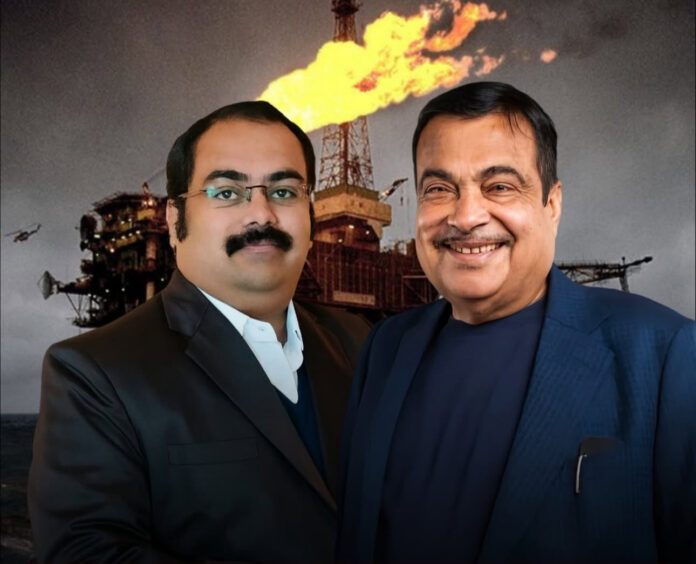A recent social media campaign has alleged a conflict of interest involving Union Minister Nitin Gadkari and his sons over ethanol production in India. The claims suggest that Gadkari promotes ethanol blending in petrol to benefit his family’s businesses. However, a closer look at the facts tells a different story.
Nitin Gadkari’s family companies — CIAN Agro (established in 1995) and Manas Agro (established in 2012) — indeed produce ethanol, but their share in India’s total production is minimal, estimated at just 0.6 percent. In contrast, leading ethanol suppliers include Balrampur Chini Mills, Triveni Engineering, Dhampur Sugar Mills, and Dwarikesh Sugar Industries, each contributing between 5–10 percent.
India’s ethanol blending programme did not begin under Gadkari’s watch. It was launched in 2003 under the Vajpayee government with 5 percent blending. The UPA government later attempted to expand it but managed little progress. The scaling up to E10 and the ongoing push towards E20 by 2025 has been spearheaded by the current government, where Gadkari has served as a prominent face but not the architect of the policy.
Critics have highlighted revenue growth in Gadkari’s sons’ companies, which rose from ₹17 crore to ₹510 crore in a year. Yet experts point out that even this figure accounts for less than one percent of national ethanol supply. After expenses and taxes, actual profit margins are likely far lower.
With production capacity surging from 421 crore litres in 2013–14 to 1,810 crore litres in 2023–24, boosting petrol blending from 1.53% to nearly 19%. This expansion has saved over ₹1.1 lakh crore in foreign exchange while supporting farmers.
To meet the E20 blending target by 2025, the government recently allowed ethanol production from sugarcane juice, syrup, and molasses without volume limits, while also incentivizing use of grains and dairy byproducts. Amul, for example, has converted whey into 20,000 litres of ethanol and plans a ₹70 crore plant capable of producing 50,000 litres daily.
Major players include Bajaj Hindusthan, Shree Renuka Sugars, and Godavari Biorefineries, alongside second- and third-generation refineries in Panipat, Bhatinda, and Bargarh. Yet, logistical hurdles remain, with only 18,000 fuel stations offering E20 blends.
Allegations around Union Minister Nitin Gadkari’s family businesses have drawn attention, but their combined ethanol output—about 84 million litres—accounts for just 0.6% of national capacity. Industry analysts note that the real gains lie in diversified producers and farmers benefiting from higher procurement prices and stable demand.
Globally, ethanol blending is standard practice: Brazil uses E27, the US widely supplies E10, E15, and E85, and Europe and China rely on E10. In India, the Supreme Court recently dismissed petitions against ethanol-blended petrol, underlining its acceptance.
Observers note that if there are concerns about monopoly or profit, scrutiny should focus on the major ethanol producers rather than Gadkari’s family, whose market share remains negligible.
Analysts suggest that while opposition parties have targeted Gadkari over alleged conflict of interest, the allegations lack merit. Critics argue that if the minister must be held accountable, it should be on governance issues such as road quality and toll collection — not on a policy where his family’s role is statistically insignificant.





